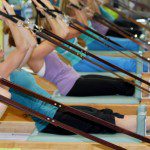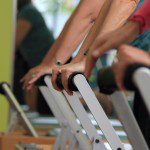“Leaving rehab today for home. Two weeks home health then outpatient therapy. All well. ‘Ouch’ is the operative. ‘Thank you’ is the overarching feeling. Hope you are both well. I cannot tell you how much more prepared for this recovery I have been as compared to others. My range and flexibility easily exceeded that of most patients from my first PT session and has amazed the PT’s. Thank you both for giving me this leg (legs) up on getting my new knees to work.”
We love getting feedback from our clients, especially when they are overjoyed with the results from all their hard work and effort. What is even more wonderful, is when we know how our experience and expertise has allowed them to enjoy getting back into the swing of things sooner than they expected after an unavoidable surgery. How is this possible? With pre-habbing, of course! The idea of “pre-habbing” is not new, but it certainly should be the norm for anyone with a surgery on the horizon.
Statistics show that over 50 million people undergo surgery every year, and with 50 percent of the outcome depending on the surgeons’ skills, what makes up the difference? You do. Though you may not have thought to prepare for surgery the way you might when buying a home or new car, there are many steps you can take prior to surgery that will alleviate many of the issues typically seen when undergoing rehab. By not only researching the doctors and surgery centers you use, but also prepping your body as much as possible by exercising at least six weeks prior with a fitness routine that is suitable for your fitness level and current physical issues, you will already be a step ahead of your recovery process.
But what types of exercise should you do? That depends on your interests and abilities as well as the type of upcoming surgery, but we suggest Pilates of course! Pilates is a whole-body exercise that allows students to develop at a rate appropriate for them. A trained instructor, such as the ones here at Dynamic Fitness, will be able to determine the proper fitness regimen prior to surgery that will give you the strength and flexibility in order to cope with the recovery period and allow your body to recuperate.
Pilates is also the perfect corrective exercise, since creating balance and strengthening alignment is the end goal. Though balance is important for everyone, it is doubly important during the recovery process due to the body compensating in other areas. This is when further injuries can occur, so by strengthening the core and engaging proper balance, the chance for these new injuries can lessen.
Whether it’s a knee-replacement surgery or even as delicate as brain surgery, Pilates can be the optimal choice for pre-habbing. Two years ago, one of our clients underwent brain surgery and offered this testimonial: “Brain surgery is not something anyone wants to hear they need, but in my case I consider myself lucky for two reasons. First, although the actual schedule for the surgery came with a surprising 90-day notice, for about a year I knew things were most likely going in that direction. Second, I had access to Pilates. In preparation for surgery, I trained extensively and Pilates was at the core of that training regimen. In a holistic approach of any kind it is sometimes difficult to pinpoint that one game changer, but I am convinced that Pilates contributed directly to not only getting out of the hospital in record time, but also to a solid recovery from all the aspects of my well-being. That extensive surgery took eight hours to complete and required two teams of neurosurgeons. Moreover, brain surgery (especially mine) typically requires a very slow and long recovery, and I believe that Pilates kept my progress going with not only the expected improvements, but also to cope with other things such as balance and proprioception that might never have improved without Pilates.”
If you or a loved one have a surgery on the horizon, be sure to contact us to see how we can help you get through this difficult experience with as much preparation and care as possible!



